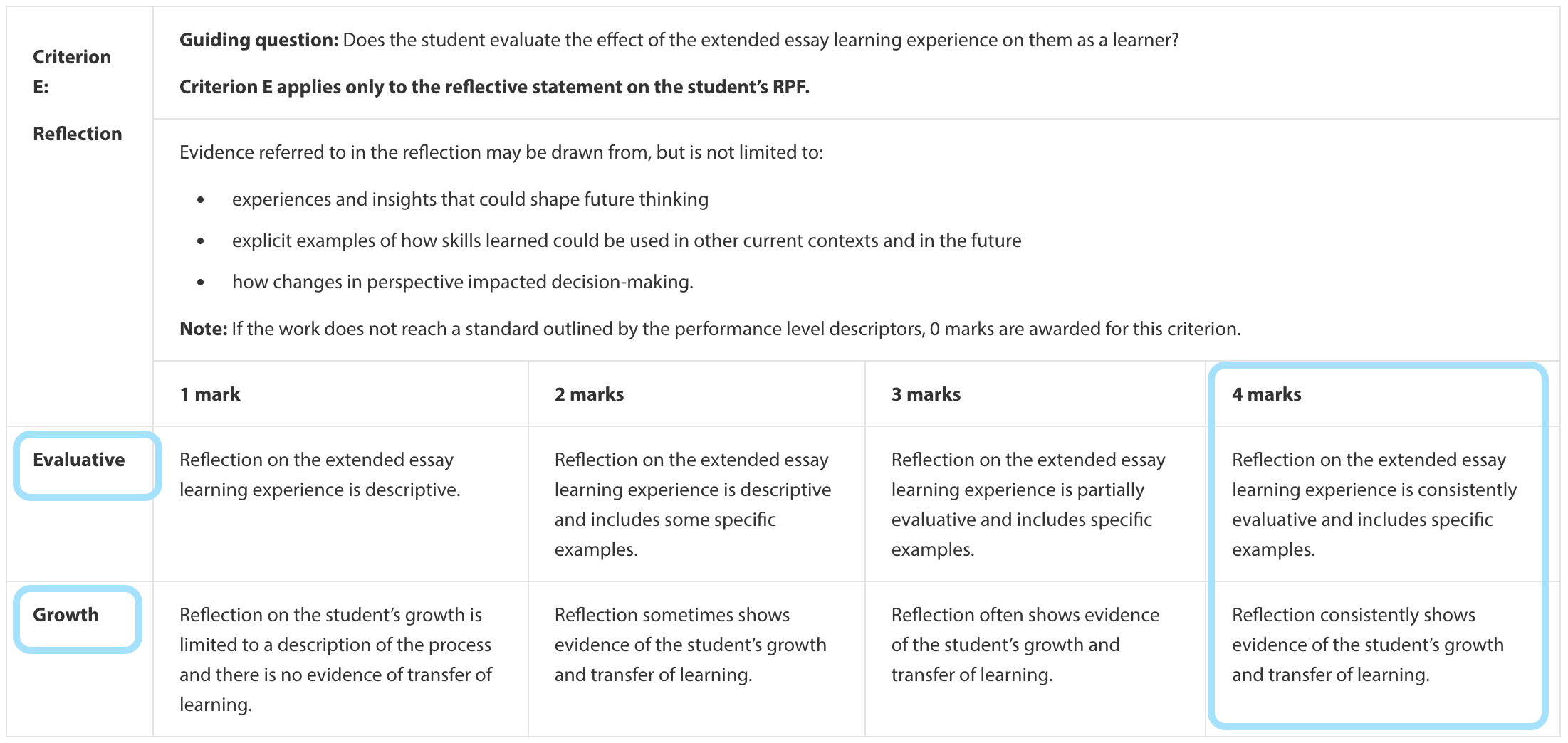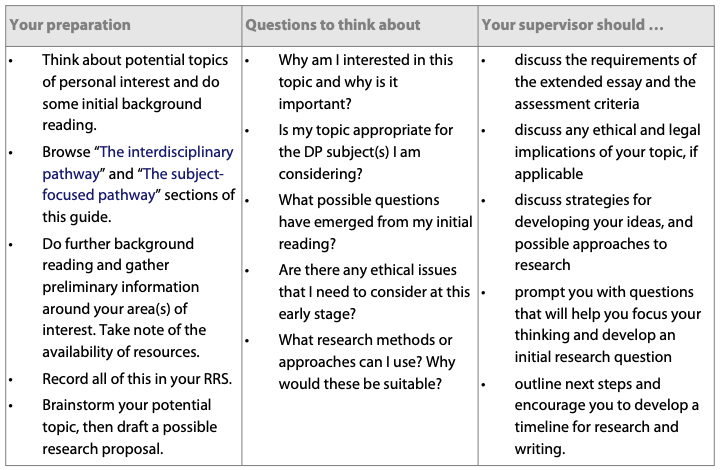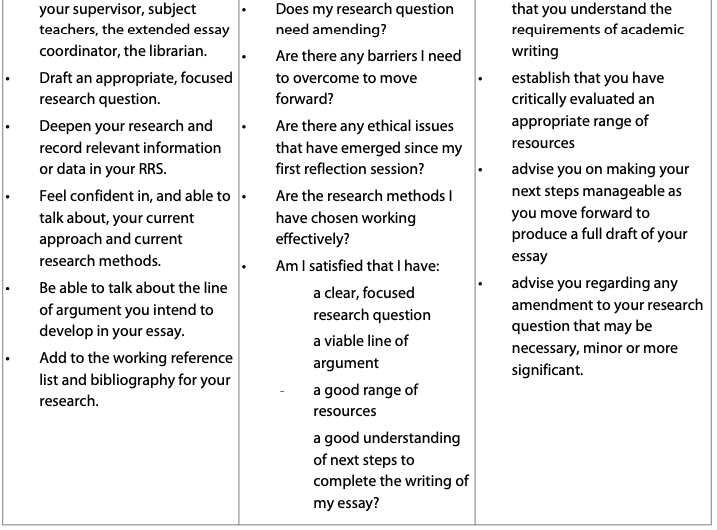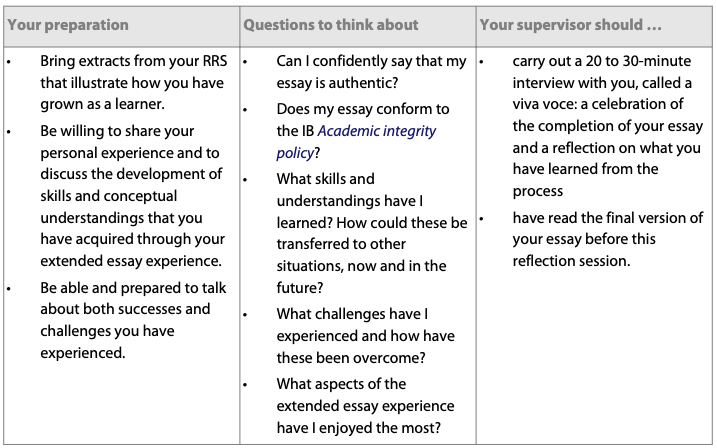
Reflection Requirements
Using your Researcher's Reflection Space (RRS)
It will be helpful to record...
Three Formal reflection sessions
Why Three Reflection Sessions?
Writing the Reflective Statement
Resources to help write the reflective statement
Ideas to include in your reflective statement
How the Reflection is Scored see full details at the Assessment Tab

Examiners look for the following in the reflective statement.
Evidence may include any of the following.

Other Questions to Focus on...
Guiding Questions:


The Second Reflection session usually falls somewhere in the middle to latter half of your EE process
Guiding Questions:
Where was I? Where I am now? Where am I going?
What sources do you find helpful?
How have you evaluated your sources?
Have you adopted a structure for writing based on what the IB requires?
What do you need to do next?

The Third Reflection can be written before the Viva Voce meeting to help you prepare for the conversation.
Guiding Questions
What did you discover that surprised you?
Is writing the EE mainly about process or product AND why?
What would you have done differently and why?
What advice would you give to a student just beginning this process?
What have been the high and low points of the research and writing processes?
What would you have done differently?
What is the most important thing that you learned?
What was your greatest challenge and how did you overcome it?
What would you change if you did another EE?
What was the most valuable experience that you took away from the process?
What was your greatest challenge and what did you do to overcome it?
What IB learner profile attribute would you say helped you through the process (communicator, risk-taker, etc.)?
Would you like to continue reading on this topic?
What questions did this process raise?
What conclusions have you drawn about the topic?
Examples from the OLD GUIDE - to get an idea of what deep reflection looks like
Also see these examples with examiner comments
Writing Tips:
Sentence starters:
Avoid using only description and keep descriptions brief. Use the prompts to spark your thinking.
See reflections with Examiner comments from the OLD GUIDE to get an idea of the level of thinking you want to attain.
Descriptive Ideas (limited reflection)
Analytical Ideas (good reflection)
Evaluative Ideas (excellent reflection)